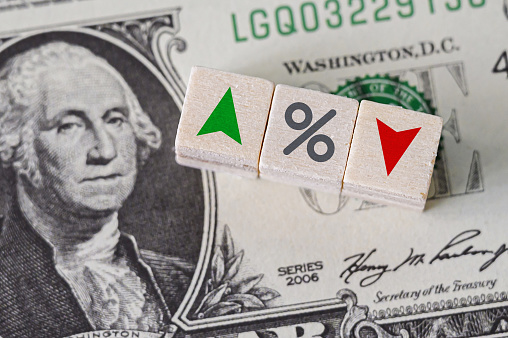On March 15, the Fed cut interest rates by half a percentage point. It was the first emergency rate cut in more than a decade with record lows.
As the United States continues to battle the coronavirus, you can expect both interest rates and mortgage rates to most likely be affected. Everything is interconnected and the pandemic will have far-reaching ramifications on the economy and markets.
If you’re curious about the connection between mortgage and interest rates and want to know if they’ll continue to go down, then keep reading.
What Is a Mortgage?
A mortgage is a loan document that you sign when you buy or refinance a home. It is a legal document that gives the lender the right to repossess the property should you become delinquent on payments.
As an interesting historical fact, mortgage traces its origins back to the Latin word “mort”. It means “death”. As you can guess, the intended meaning is that the debt is yours until death or repayment.
What Are Interest Rates?
An interest rate is a percentage of the principal charged by the lender. The principal is the total amount of money that is borrowed. You are charged an interest rate in exchange for using the lender’s money which then determines what your mortgage payments are each month.
Will Interest Rates Go Down?
On March 15th, the Federal Reserve cut interest rates to zero in a second emergency move. The Fed cited the coronavirus outbreak as the reason behind the massive cut since it has disrupted economic activity. Both the U.S. Treasury and the Federal Reserve work hand in hand to ensure economic stability.
So, yes, interest rates have gone down. For how long they will stay at such low rates is difficult to say, though.
Before the coronavirus wreaked havoc on the stock market and economy, many were speculating that interest rates would remain low and hold steady through 2020. In the aftermath of current events, however, predictions are hard to make.
Will Mortgage Rates Drop?
The current mortgage rate news is that they are experiencing massive fluctuations from week to week.
At the start of March 2020, mortgage rates were at a record three-year low. A 30-year fixed-rate mortgage averaged 3.29%. Now, on March 19, a 30-year fixed-rate mortgage has spiked to an average of 3.65%.
What Is the Relationship Between Interest and Mortgage Rates?
The Federal Reserve doesn’t have the direct ability to set mortgage rates. However, the monetary policies it makes that impact the price of credit does indirectly affect mortgage rates.
Several tools the Federal Reserve can implement that impact rates are:
- quantitative easing
- federal funds rate
- open market operations
You can say that the Federal Reserve creates a ripple effect.
For example, when the Federal Reserve increases the federal funds rate, this, in turn, makes it more expensive for banks to borrow. The bank then passes these higher costs on to the customers. This is how you get high mortgage rates.
So, interest and mortgage rates are closely connected. With mortgage rates lower than they’ve been in years, there has been a recent flurry of activity.
Though housing prices remain much the same, low mortgage rates created a rush of new home buyers applying for mortgages. With such low-interest rates, interested home buyers are able to stretch their savings accounts longer. There were also many current homeowners interested in refinancing. There were so many homeowners eager to refinance, in fact, that it overwhelmed lenders and created a backlog.
Another important dynamic to keep in mind is how the U.S. Treasury affects interest rates. The U.S. Treasury’s bonds and notes affect interest rates, as well as the value of a dollar. On March 20th, 10-year Treasury yields fell below 1%.
Will Mortgage Rates Continue to Go Down in 2020?
It’s difficult to predict with any certainty whether the rates will once more dip, or continue to rise. However, there’s a good chance that mortgage rates will either once more drop or at least hold steady for the remainder of the year.
First, the Federal Reserve slashed interest rates to near zero. While mortgage rates aren’t tied into the federal funds rate, the average trend is for them to move in the same direction.
Furthermore, the Federal Reserve passed a $700 billion quantitative easing program. The easing program creates a higher demand for lenders to get new mortgage loans. The key thing to remember from this is that more demand for mortgage loans equals more competition. When there’s more competition, it can create lower rates.
While there’s no way to say with any complete certainty, it’s possible the average APR for a 30-year fixed-rate mortgage might eventually fall below 3% at some point later in the year. The real estate housing market remained low on inventory through 2019, and 2020 isn’t expected to differ too much in this aspect.
Will Interest Rates Stay Low in 2020?
Like with mortgage rates, it’s difficult to say with any real certainty what the Federal Reserve will do later in the year. However, there are certain key clues that hint that the interest rates should stay near 0% for much of the year.
The Federal Reserve issued a Federal Open Market Committee statement on March 15th. In the statement, the Federal Reserve states it intends to maintain the current interest rates level until they’re certain that the economy is done weathering the coronavirus pandemic. Once the Federal Reserve believes the economy is rebounding and that employment and price stability have recovered, that’s when they’ll look at adjusting the interest rates once more.
So, let’s say the pandemic comes to a close in a couple of months. It is possible for the economy to rebound fast. This would transfer into strong numbers showing for the third quarter of the year.
The Federal Reserve will probably wait to see if strong numbers remain a trend through the fourth quarter of the year, and maybe even the first quarter of 2021.
That means it’s quite possible the Federal Reserve won’t feel fully confident in the economy until some time in 2021.
Compare and Lower Your Monthly Bill Today
If you’re hoping to take advantage of the current interest rates and refinance your home to lower your mortgage rates, now is the time to move. Lower My Bills can help you compare service providers to find the best mortgage rate possible.
Lower My Bills is a one-stop destination that can help you save big on your mortgage, credit cards, and insurance. It can help you compare personal loans so you can find one best suited to your needs to help with that home improvement project you’ve been putting off for years.



